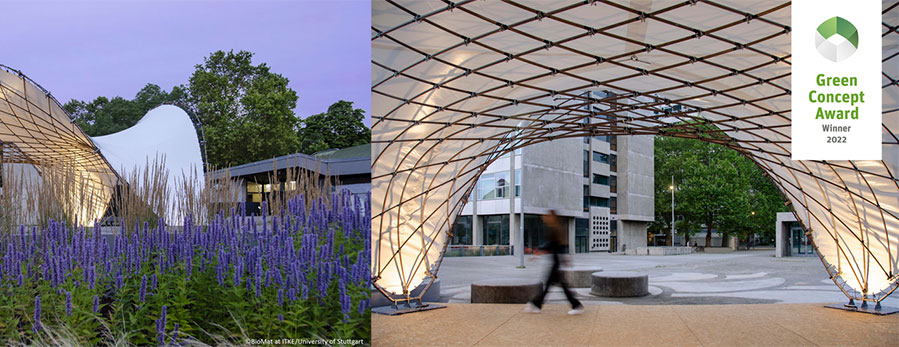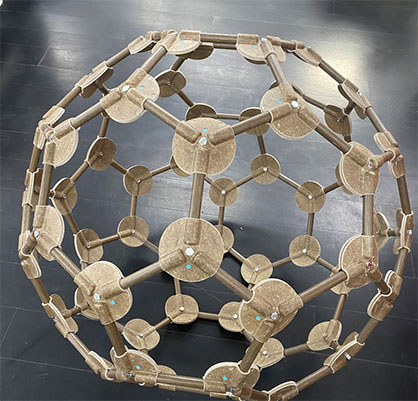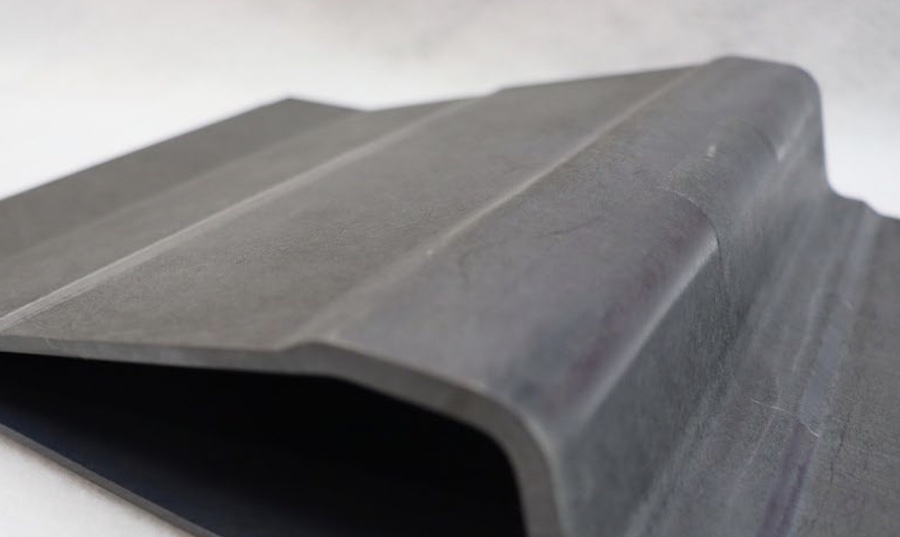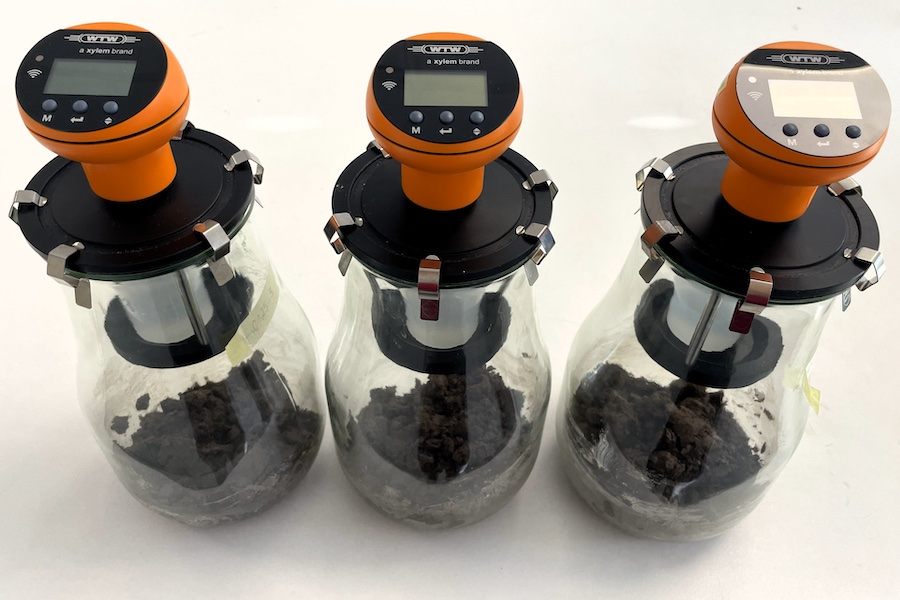#Research & Development
Biocomposite at the Venice Architecture Biennale

The ultralight components are the result of a joint project between partners from research and industry, funded by the German Federal Ministry of Food and Agriculture. In the future, they will be used in the field of mobile architecture and in pavilions and architecture with low load-bearing capacity.
The DITF had the task of selecting suitable materials for the biocomposite and developing manufacturing processes. In order to achieve the highest possible organic content, hemp and flax fibers and a resin system based on epoxidized linseed oil were used. These natural resources were used in both pultrusion and hotpressing processes.
Processing natural fibers into high-performance products is challenging because they are thicker, more uneven, wetter and also more sensitive than high-performance fibers made of glass, carbon or aramid. To date, natural fibers have been predominantly pultruded using petroleum-based resins or resins with a very low bio-content. The resulting composites did not achieve sufficient fiber-matrix adhesion, which is why the mechanical properties were unsatisfactory. At the DITF, these material- and process-related problems were largely solved. For example, the pre-drying of the natural fiber rovings in pultrusion was a decisive solution. What was successful on a laboratory scale at the DITF could also be implemented on an industrial scale. For the LightPRO Shell Pavilion, the Buckyball and for the Biennale exhibition, project partner CG-TEC produced a total of 800 meters of tubular profile, which was used as a support element. For the node connecting the support profiles, the project partners created a design, based on which a suitable molding tool for the hotpressing process was produced. At the end of the project, more than 60 connecting nodes for the buckyball were produced at the DITF using this molding tool, a section of which can now be viewed in Venice.
Practical tests have shown that the biocomposite material developed at DITF is suitable for a wide range of architectural applications. Compared to fiberglass plastics, biocomposites do not splinter in a crash. They are also a sustainable building material. They consume much less energy in their production and sequester a large amount of carbon in the long term. Due to their low density, they weigh little and are therefore suitable for many lightweight construction applications. The aim of lightweight construction is to save raw materials, energy and thus costs. The use of biocomposites offers the construction industry great potential for treading new resource-saving paths.

The LeichtPRO research project was funded by the Agency for Renewable Resources (FNR) on behalf of the German Federal Ministry of Food and Agriculture.

















